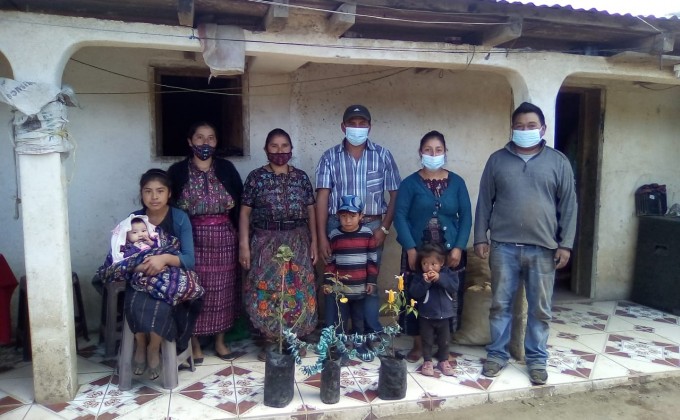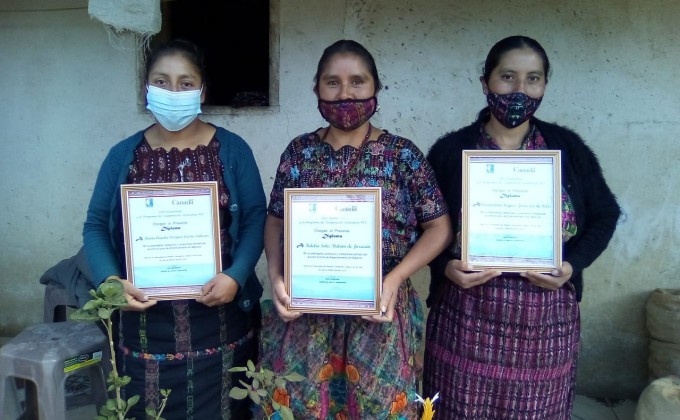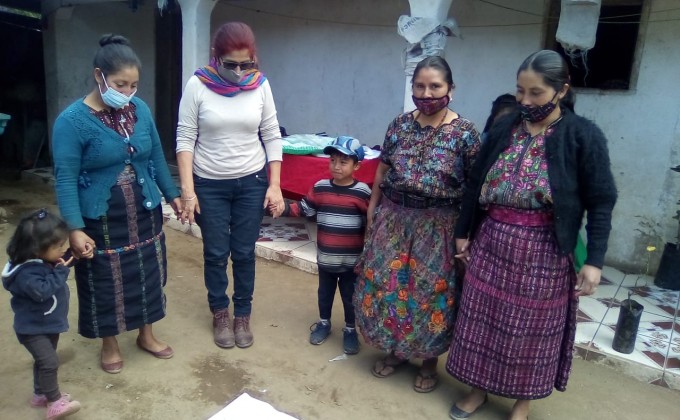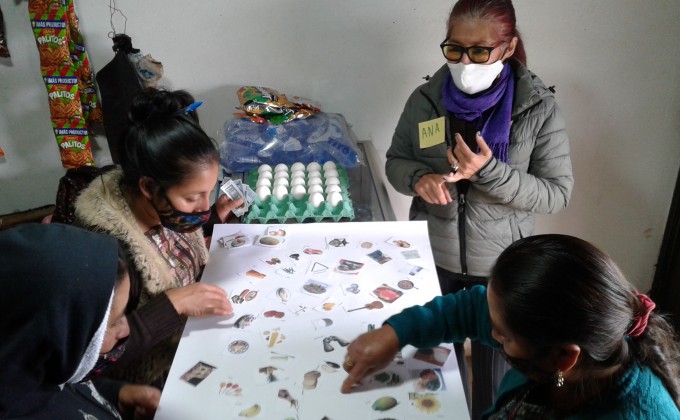



Posted by CECI-Guatemala
This article aims to share a story of hope, about a project funded by the Canada Fund for Local Initiatives and administered by CECI in Guatemala: a story about the entrepreneurial journey of three indigenous women and their resilience in the face of the inequalities they experience on a daily basis.
Guatemala is one of the countries with the highest levels of inequality in Latin America. In addition to the multidimensional poverty indicators that highlight blatant economic, structural and historical inequalities, there is also a gap due to gender inequality. The average age of the country’s population is 25, but it turns out that Guatemala is the “Second worst country in the Americas to be born as a girl”, according to indicators relating to the opportunities available for girls and data on child marriage, teenage pregnancies, maternal mortality and health, access to health and levels of education. Several reports and studies have revealed that indigenous peoples and women are the demographics most affected by poverty, extreme poverty, exclusion and lack of opportunities. This reality was exacerbated by the COVID-19 pandemic: in this context, there are very few economic opportunities in sustainable entrepreneurship for indigenous peoples, and for indigenous women in particular.
In this sense, in a country hit hard by extreme poverty and by systemic and historical racism, it is very difficult for an indigenous woman from an isolated community, forgotten by state institutions, to launch a business and thrive; they have to start from the ground level or, worse, with all the odds stacked against them.
In the community of Chuisolis, in the municipality of Concepción, department of Sololá, live Marta, Carmelina and Fidelia, three young Mayan Kaqchikeles women. Spanish is their second language and they haven’t had the opportunity to learn to write it, but they are very proud to speak their mother tongue. “It is for this reason that in my methodology I use many illustrations and drawings, so that we can understand each other. Seeing them smile and take an interest in receiving the workshops makes me believe that we are indeed managing to communicate well,” reflected Ana Caravantes, Entrepreneurial Management Advisor for Women within CECI’s Volunteer Cooperation Program*. Ana has been sharing her experience and knowledge with vulnerable populations in Latin America for the past fourteen years. When she joined the CECI Guatemala volunteer team in November 2020, she settled down in the department of Sololá. She was one of the first volunteers to reconnect with partner organizations and local populations in the country after the onset of the pandemic.
Ana started her volunteer work by supporting the project “Strengthening of household economy in three municipalities of the Lake Atitlán basin through the strengthening of family poultry production and the empowerment of women,” implemented by an alliance between CECI Guatemala, AMSCLAE and the Ministry of Agriculture, Livestock and Food, with the financial support of the Government of Canada through the Canada Fund for Local Initiatives (CFLI).
The project's objective is to contribute to the local rural economy through the empowerment of women and their participation in poultry production, by promoting sustainable farming practices that are respectful of the environment and of the ecosystems of the lake Atitlán Basin.
During a workshop led by Ana, Marta told her that the women of Chuisolis had to walk several kilometres every day to get to the nearest nixtamal mill. Nixtamal is the product of mixing ground corn kernels with water and lime. Once the corn is ground, the women return home carrying the dough that is used to make tortillas for the three meals of the day, the corn tortilla being the ancient food of the Mayas. Ana explained that, most of the time, the nixtamal mills are businesses run by men from the community.
“The community of Chuisolis has been very special to me. Marta, one of the beneficiaries, spoke with several women from the community in order to form a group and start doing business together. The first group of women she approached said no, as did the second one,” recalls Ana, thinking of the organizational hurdles Marta faced at the beginning. “That is until she managed to convince two friends, Carmelina and Fidelia, to launch the nixtamal mill business thanks to a donation from the Canadian Embassy in Guatemala.”
The three women attended all of the entrepreneurship workshops given by Ana and were given a diploma. “We are deeply affected by the pandemic here; we can neither work nor go out. It has a great impact on us, because there is no work and we cannot earn money,” Marta told Ana after a workshop.
The business idea of Marta, Carmelina and Fidelia is to have a mill in the community so that women no longer have to walk so much to get the corn dough, and to offer this service at a fair price for all so that the business can be sustainable and fulfill the needs of the three funding families. “There are many needs here, in this county where we live. We are very poor, we have no money, there is no work here,” says Marta. “I hope [our situation] can change a bit thanks to the support you give us. We need strength, and above all we need something to support our families. We have limited resources, but we stand together: three women, united and determined to work together. Receiving a mill is a great support, a precious help given to us by CECI.”
Thanks to Ana’s contribution through her workshops, Marta, Carmelina and Fidelia feel supported and ready to launch their nixtamal mill business, thus fulfilling their dream of being able to provide for their families with dignity.
* CECI’s volunteer cooperation program aims to improve the economic and social well-being of the poorest and most marginalized people in Africa, Asia and the Americas. CECI is specifically looking to strengthen the position of women and young women as leaders and agents of change for a sustainable and inclusive development. By sharing their skills and know-how, and by working closely with local partners, CECI’s volunteers work for the economic empowerment of women and young women, and to build the resilience of communities in the face of climate change.